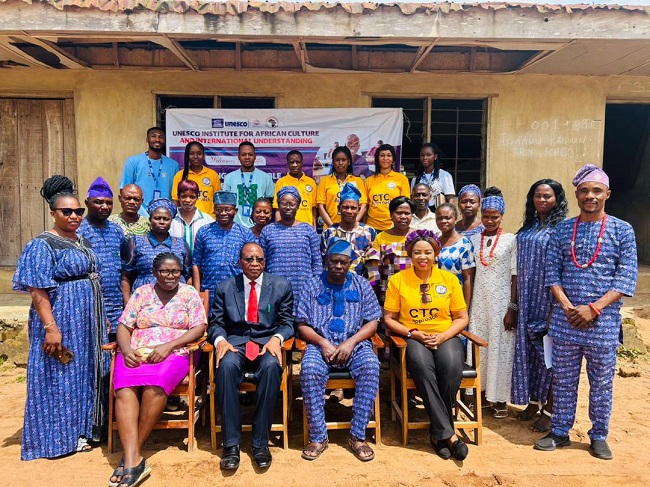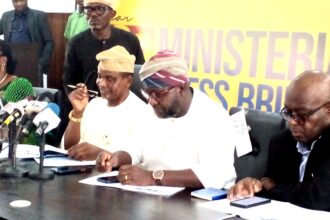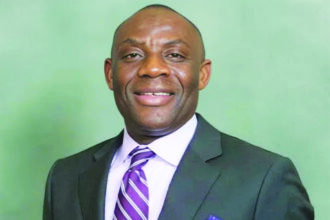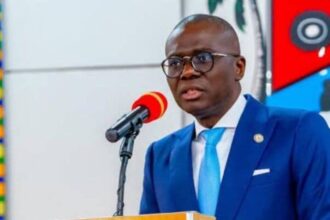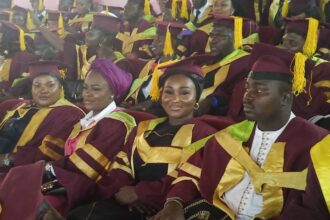The UNESCO Institute for African Culture and International Understanding (IACIU) has asked the Nigerian government to consider the comprehensive technology-cultural approach (CTCA) as part of efforts to create a sustainable educational system in the country.
Director of the institute, Professor Peter Okebukola, made the remark when the IACIU organised a training programme for teachers at Bakatari High School in Oyo State on Thursday.
Okebukola said the CTCA underscores the significance of integrating technology with education in a manner that honours the nation’s rich cultural heritage and promotes sustainability.
While expressing his displeasure over the alarming number of out-of-school children population in Africa, the director stated that sustainable education will serve as a barrier against the widespread poverty and ignorance in Nigeria.
Okebukola said: “The Comprehensive Technology-Cultural Approach (CTCA) underscores the significance of integrating technology with education in a manner that honours our rich cultural heritage, promotes sustainability, and remains responsive to the unique requirements of our communities.
“Nigeria currently holds the unenviable distinction of having the largest out-of-school population in Africa. As such, the responsibility to reintegrate all out-of-school pupils into the educational system falls squarely on the shoulders of the government.”
The former Chairman of the Nigeria University Commission (NUC) equally stated that the CTCA essential to prevent potential socio-economic issues from escalating into severe crises.
According to him, it is imperative to equip teachers with the skills necessary to use technology effectively in the teaching and learning process to address the knowledge gap between the educators and students.
“The establishment of a sustainable educational system is of paramount importance for the progress and prosperity of Africa. The Comprehensive Technology-Cultural Approach (CTCA) stands as an all-encompassing framework to achieve this pivotal objective.
“This strategy places particular importance on acknowledging the distinctive cultural context of the African continent and the necessity of integrating technology in a sustainable and culturally sensitive manner, catering to the unique requirements of our diverse communities,” he said.
Meanwhile, the institute promoted the practice of African dances while donning different cultural regalia at the dance competition it organised for secondary students at the Ibadan-based school.
During the event, which was held at Bakatari Community High School, Ibadan the students in their cultural attires, representing different cultural groups in Nigeria, engaged in a dance competition to promote the various cultures in the country.
The dance competition is born out of the initiative to showcase and celebrate the African identity, while creating a platform for students to explore and express their cultural identities through captivating performances and beautiful visual displays.
Okebukola disclosed that the aim of the programme is to raise awareness and appreciation of the diverse cultures, traditions and languages that exist within Africa.
He said: “The theme of this competition is not just a slogan but a reflection of our collective belief in the power of culture to connect people and build bridges between communities. Africa is a continent blessed with an incredible array of traditions, languages, and histories. This event provides us with an opportunity to showcase and celebrate the vibrant mosaic that is our African identity.
“The aim of this programme is to raise awareness and appreciation of the diverse cultures, traditions and languages that exist within Africa, fostering a sense of pride and unity in our shared heritage.
“This event is a testament to the rich tapestry of cultures that our great continent possesses, and it signifies the unity in diversity that makes Africa unique. Take this opportunity to learn about the cultures of your fellow Africans, as it is through understanding and respect that we can forge lasting connections and break down barriers. Let us remember that the strength of Africa lies in its diversity.”
READ ALSO FROM NIGERIAN TRIBUNE

